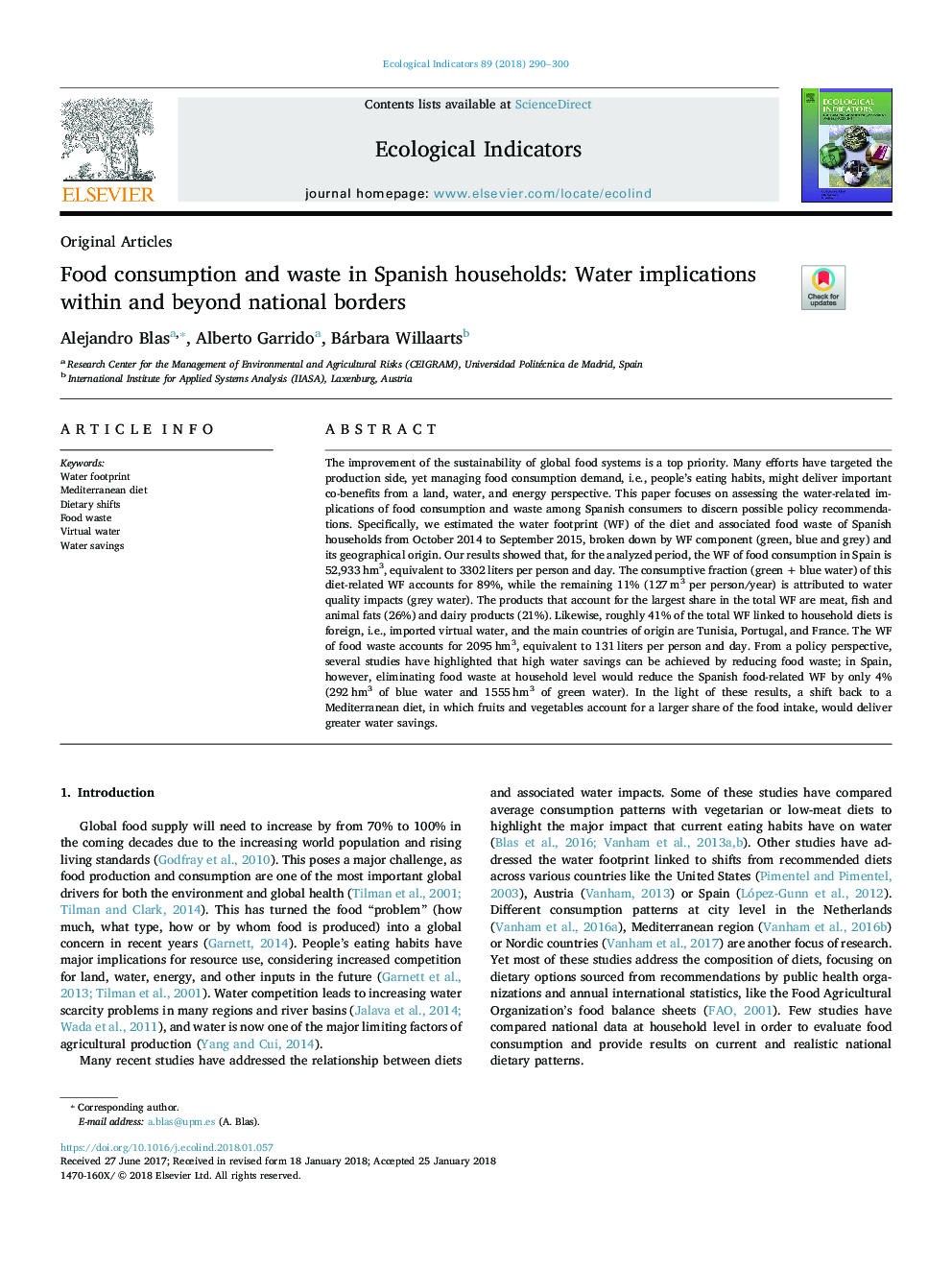| کد مقاله | کد نشریه | سال انتشار | مقاله انگلیسی | نسخه تمام متن |
|---|---|---|---|---|
| 8845465 | 1617113 | 2018 | 11 صفحه PDF | دانلود رایگان |
عنوان انگلیسی مقاله ISI
Food consumption and waste in Spanish households: Water implications within and beyond national borders
ترجمه فارسی عنوان
مصرف مواد و زباله در خانوارهای اسپانیا: پیامدهای آب در داخل و خارج از مرزهای ملی
دانلود مقاله + سفارش ترجمه
دانلود مقاله ISI انگلیسی
رایگان برای ایرانیان
کلمات کلیدی
رد پای آب رژیم غذایی مدیترانه ای، تغییرات غذایی، زباله های مواد غذایی، آب مجازی صرفه جویی در مصرف آب،
موضوعات مرتبط
علوم زیستی و بیوفناوری
علوم کشاورزی و بیولوژیک
بوم شناسی، تکامل، رفتار و سامانه شناسی
چکیده انگلیسی
The improvement of the sustainability of global food systems is a top priority. Many efforts have targeted the production side, yet managing food consumption demand, i.e., people's eating habits, might deliver important co-benefits from a land, water, and energy perspective. This paper focuses on assessing the water-related implications of food consumption and waste among Spanish consumers to discern possible policy recommendations. Specifically, we estimated the water footprint (WF) of the diet and associated food waste of Spanish households from October 2014 to September 2015, broken down by WF component (green, blue and grey) and its geographical origin. Our results showed that, for the analyzed period, the WF of food consumption in Spain is 52,933â¯hm3, equivalent to 3302â¯liters per person and day. The consumptive fraction (greenâ¯+â¯blue water) of this diet-related WF accounts for 89%, while the remaining 11% (127â¯m3 per person/year) is attributed to water quality impacts (grey water). The products that account for the largest share in the total WF are meat, fish and animal fats (26%) and dairy products (21%). Likewise, roughly 41% of the total WF linked to household diets is foreign, i.e., imported virtual water, and the main countries of origin are Tunisia, Portugal, and France. The WF of food waste accounts for 2095â¯hm3, equivalent to 131â¯liters per person and day. From a policy perspective, several studies have highlighted that high water savings can be achieved by reducing food waste; in Spain, however, eliminating food waste at household level would reduce the Spanish food-related WF by only 4% (292â¯hm3 of blue water and 1555â¯hm3 of green water). In the light of these results, a shift back to a Mediterranean diet, in which fruits and vegetables account for a larger share of the food intake, would deliver greater water savings.
ناشر
Database: Elsevier - ScienceDirect (ساینس دایرکت)
Journal: Ecological Indicators - Volume 89, June 2018, Pages 290-300
Journal: Ecological Indicators - Volume 89, June 2018, Pages 290-300
نویسندگان
Alejandro Blas, Alberto Garrido, Bárbara Willaarts,
